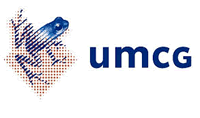PhD positions in Translational Vision Science
Want to apply? Visit our website http://www.optivist.eu for more details.
It is essential to know what visually impaired individuals can do with their residual vision in daily life activities, otherwise known as their "functional vision". Conventional ophthalmic tests (e.g. visual field tests) are able to detect the extent of a visual defect, but they yield little information about functional vision. This lack of appropriate tests impedes the optimal practice of diagnostics (in ophthalmic and neurological care, in particular of children and elderly), rehabilitation and classification (essential in sports competitions).
Our European MARIE SKLODOWSKA-CURIE Innovative Training Network (ITN) OptiVisT aims to resolve this by (1) gaining new Insights: i.e. a fundamental understanding of the visual demands of activities of daily living and sports; (2) developing Solutions: i.e. creating new objective, inclusive and engaging tools for testing, training and augmenting functional vision; and (3) the Application of 1 and 2: evaluating the effectiveness of our new tools in diagnostics, rehabilitation and classification in practice.
Are you, like us, fascinated by vision, the brain and technology and consider it important to help visually impaired people? Do you have an inquisitive mind, and are you looking for a PhD position embedded in an international innovative training network in which you can develop your research, technical or clinical skills? Then consider applying with OptiVisT and join one of our 15 PhD projects (overview below). We offer PhD positions in academia, medical, technology and rehabilitation institutes, and high-tech companies.
Curious to see and hear more about what it means to be part of such Innovative Training Network? Check out these two short movies about our previous ITNs NextGenVis and EGRET+.
Requirements
- Have a strong interest in vision (psychophysics, eye-tracking, VR, non-invasive electrophysiology, neurological and ophthalmic disorders), computational approaches to vision science, deep learning and/or biologically motivated computer vision.
- Be passionate about doing research and have or be willing to develop the skills to communicate this passion with other scientists and the general public.
- Have relevant skills and experiences, and a strong interest in both theoretical and applied science.
- Welcome the opportunity to conduct research abroad and to work within an international and multidisciplinary team.
- Hold a MSc (or equivalent) in a relevant discipline (which can be, but is not limited to, biology, experimental and clinical psychology, medicine, physics, movement sciences, artificial intelligence, computer science, mathematics).
- Be an eligible candidate according to the eligibility conditions indicated below.
Details on and the requirements for the specific projects can be found via: http://www.optivist.eu/projects/
How to apply
If you are interested in one of our PhD positions, visit our website (www.optivist.eu) for more information on our application procedures. The deadline for applying for this project is February 28th, 2021. General questions can be directed to info@optivist.eu. Project specific questions can be directed to the project contacts as mentioned on the website.

 Continue with Facebook
Continue with Facebook


